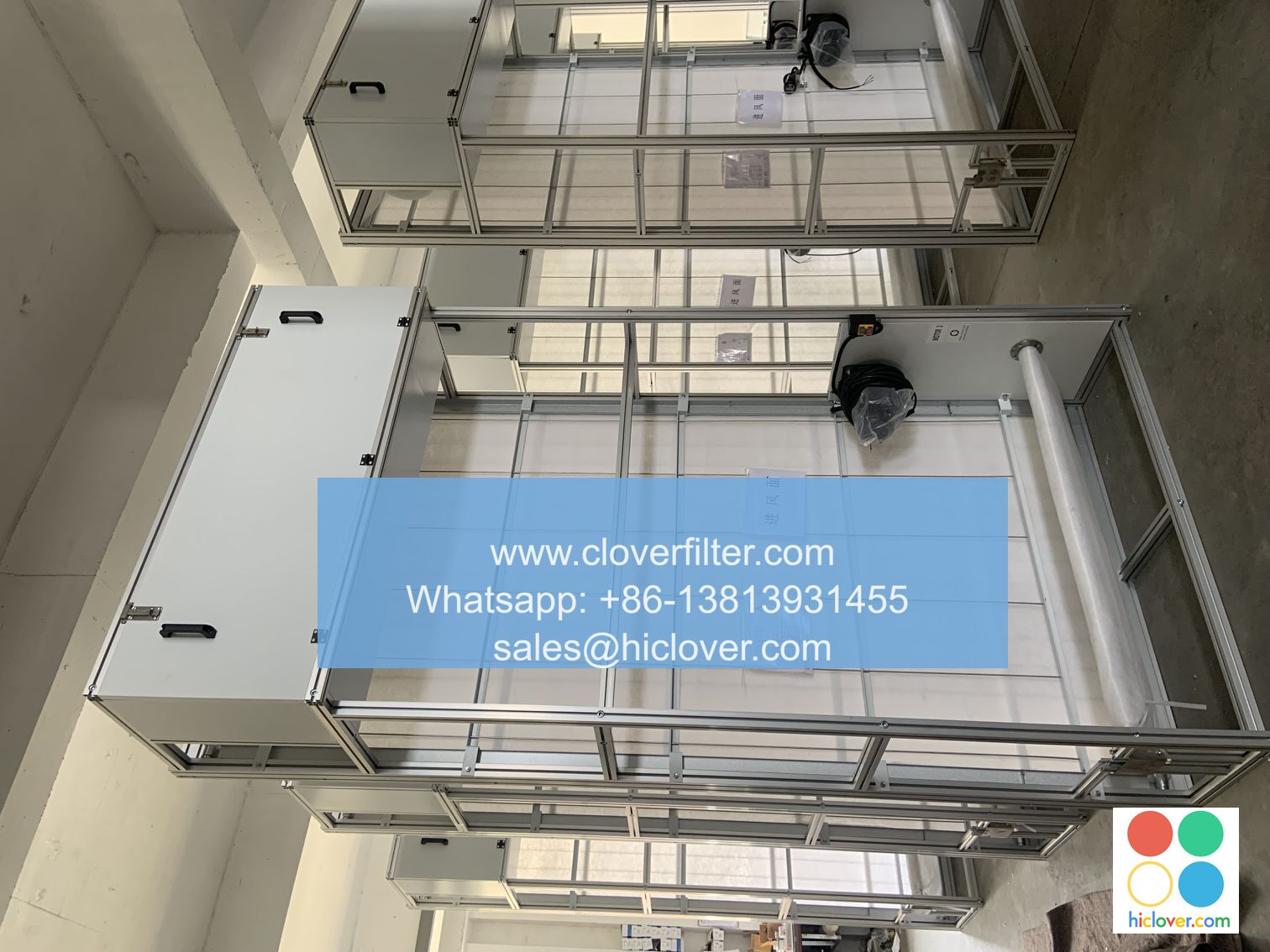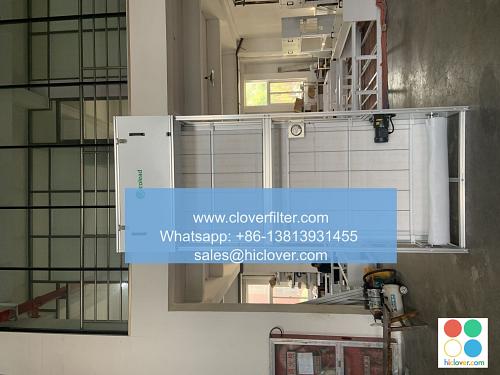The Benefits of Automatic Roll Air Filters in Reducing Pharmaceutical Cleanroom Energy Costs

Pharmaceutical cleanrooms are highly controlled environments that require precise temperature, humidity, and air quality conditions to ensure the production of high-quality products. Maintaining these conditions can be energy-intensive, which is why many pharmaceutical manufacturers are looking for ways to reduce their energy costs without compromising the quality of their products. One solution that has gained popularity in recent years is the use of automatic roll air filters.
Automatic roll air filters are designed to provide a continuous supply of clean air to the cleanroom while minimizing the amount of energy required to operate the heating, ventilation, and air conditioning (HVAC) system. These filters use a rolling mechanism to advance a new section of filter media as the old section becomes dirty, which helps to maintain a consistent level of airflow and filtration efficiency. By reducing the need for frequent filter replacements and minimizing the energy required to operate the HVAC system, automatic roll air filters can help pharmaceutical manufacturers reduce their energy costs and improve their bottom line.
One of the primary benefits of automatic roll air filters is their ability to reduce the amount of energy required to operate the HVAC system. Traditional filters often become clogged with debris and require more energy to push air through them, which can increase the load on the HVAC system and drive up energy costs. Automatic roll air filters, on the other hand, use a rolling mechanism to advance a new section of filter media as the old section becomes dirty, which helps to maintain a consistent level of airflow and filtration efficiency. This can result in significant energy savings, especially in large cleanrooms where the HVAC system is operating continuously.
Another benefit of automatic roll air filters is their ability to improve the quality of the air in the cleanroom. By providing a continuous supply of clean air, these filters can help to reduce the presence of airborne contaminants and improve the overall quality of the products being produced. This is especially important in pharmaceutical cleanrooms, where even small amounts of contamination can have serious consequences. By using automatic roll air filters, pharmaceutical manufacturers can help to ensure that their products meet the highest standards of quality and purity.
In addition to reducing energy costs and improving air quality, automatic roll air filters can also help to reduce maintenance costs and extend the life of the HVAC system. Traditional filters often require frequent replacements, which can be time-consuming and costly. Automatic roll air filters, on the other hand, can operate for long periods of time without requiring replacement, which can help to reduce maintenance costs and minimize downtime. Additionally, the rolling mechanism used in these filters can help to reduce the wear and tear on the HVAC system, which can help to extend its life and reduce the need for costly repairs.
Overall, automatic roll air filters offer a number of benefits for pharmaceutical manufacturers, including reduced energy costs, improved air quality, and lower maintenance costs. By providing a continuous supply of clean air and minimizing the energy required to operate the HVAC system, these filters can help to improve the quality of products and reduce the costs associated with cleanroom operation. As the pharmaceutical industry continues to evolve and become more competitive, the use of automatic roll air filters is likely to become increasingly popular as a way to reduce costs and improve efficiency.
In order to get the most out of automatic roll air filters, it is essential to properly install and maintain them. This includes ensuring that the filters are properly sized for the cleanroom, that they are installed correctly, and that they are regularly inspected and maintained. By following these steps, pharmaceutical manufacturers can help to ensure that their automatic roll air filters are operating at peak efficiency and providing the maximum benefits in terms of energy savings and improved air quality.
Conclusion
In conclusion, automatic roll air filters offer a number of benefits for pharmaceutical manufacturers, including reduced energy costs, improved air quality, and lower maintenance costs. By providing a continuous supply of clean air and minimizing the energy required to operate the HVAC system, these filters can help to improve the quality of products and reduce the costs associated with cleanroom operation. As the pharmaceutical industry continues to evolve and become more competitive, the use of automatic roll air filters is likely to become increasingly popular as a way to reduce costs and improve efficiency.
FAQs
Q: How do automatic roll air filters work?
A: Automatic roll air filters use a rolling mechanism to advance a new section of filter media as the old section becomes dirty, which helps to maintain a consistent level of airflow and filtration efficiency.
Q: What are the benefits of using automatic roll air filters in pharmaceutical cleanrooms?
A: The benefits of using automatic roll air filters in pharmaceutical cleanrooms include reduced energy costs, improved air quality, and lower maintenance costs.
Q: How often do automatic roll air filters need to be replaced?
A: Automatic roll air filters can operate for long periods of time without requiring replacement, which can help to reduce maintenance costs and minimize downtime.
Q: Can automatic roll air filters be used in other types of cleanrooms?
A: Yes, automatic roll air filters can be used in other types of cleanrooms, including those used in the production of food, cosmetics, and electronics.
Q: How do I properly install and maintain automatic roll air filters?
A: To properly install and maintain automatic roll air filters, it is essential to ensure that they are properly sized for the cleanroom, that they are installed correctly, and that they are regularly inspected and maintained.


